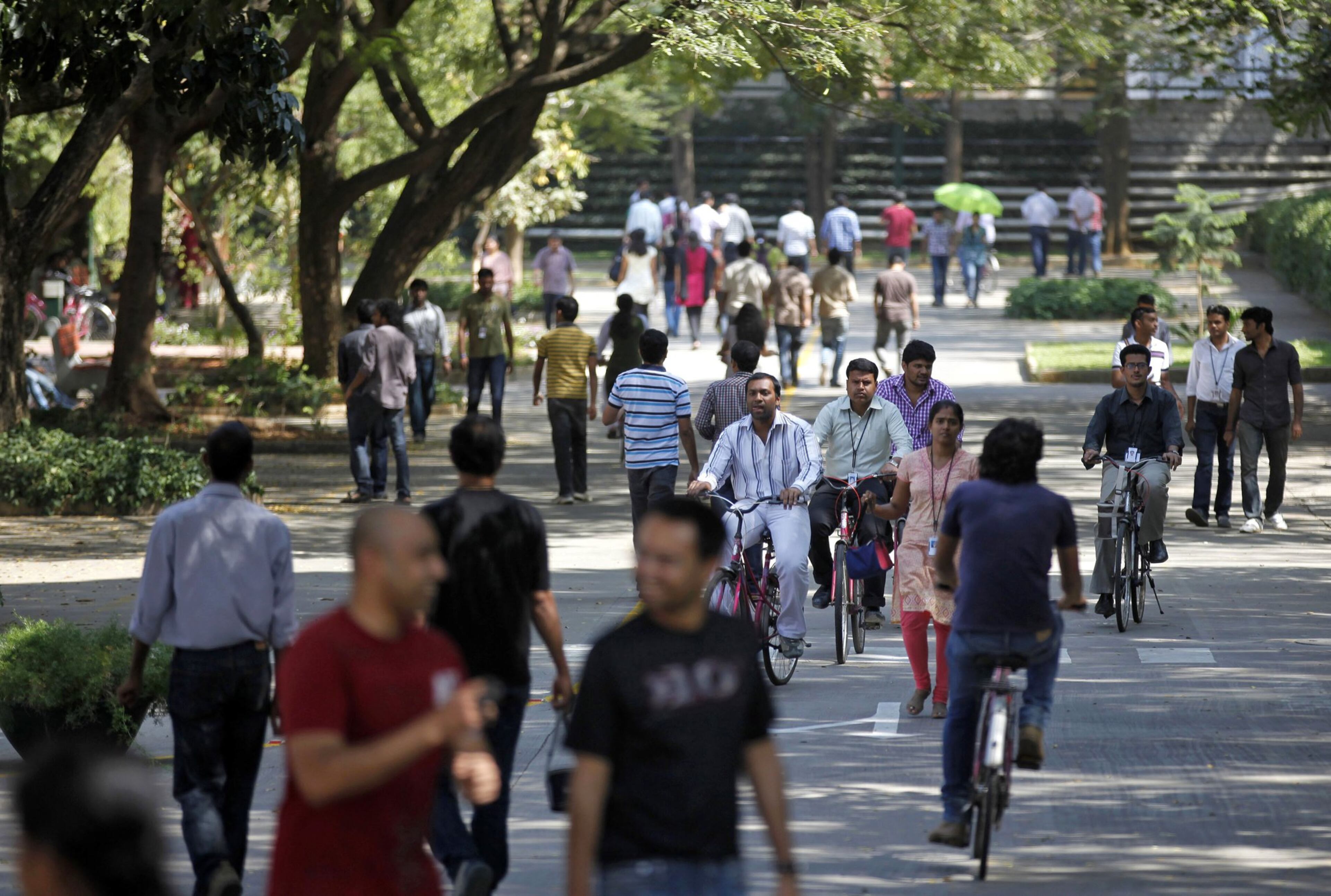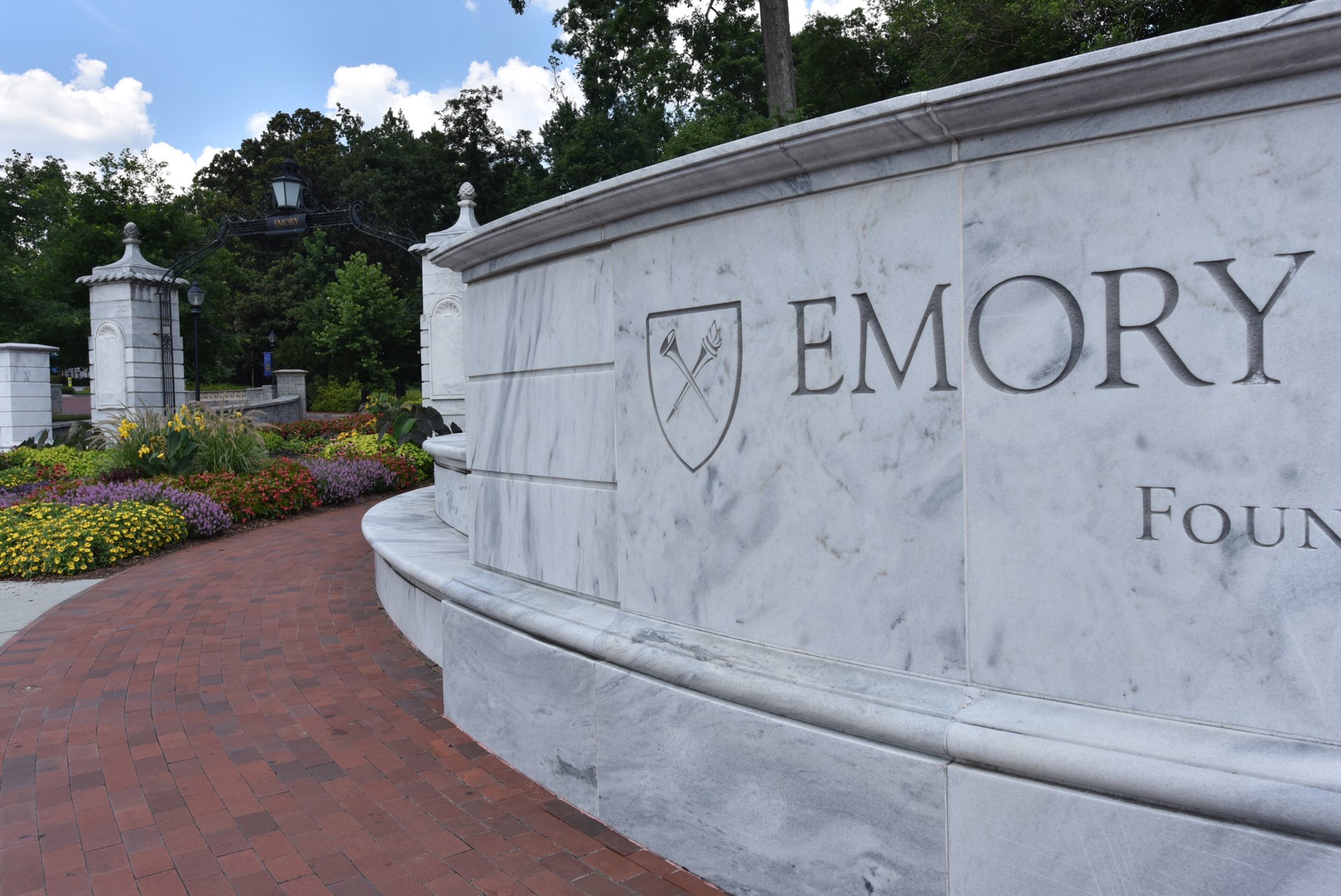Immigration debate fuels worry about tech workers
Emory University employs about 300 foreign workers under temporary visas, assigning them to a wide range of research projects.
Their work “is part of our core mission,” says Philip Wainwright, vice provost for global strategy. “The program and the research we think benefits the United States and benefits human kind.”
Emory is one of the biggest users in metro Atlanta of the H-1B visa program, which brings 85,000 people a year into the United States to fill positions for which their employer cannot find a qualified American.
But the program has come under periodic criticism. And because it lies at the intersection of immigration and jobs, it could soon be ratcheted back as part of the Trump administration’s signature efforts on those issues.
That worries some people in metro Atlanta’s tech community because the positions being filled by H-1B holders are often key software jobs that produce innovations that fuel progress.
“I think it’s very important to Atlanta,” said Rich Napoli, chief executive of Alpharetta-based software developer ObjectFrontier. “We are not talking about huge numbers, but they are like the seed corn.”
To hire a worker with an H-1B visa, a company must certify that it cannot find the skills it needs among Americans. And it must pay at least a base salary set by the government.
ObjectFrontier has 500 employees, 400 in India, but he argues that without the visas the company couldn’t do the work, “We are users of the H-1B – we use it quite a bit.”
About half of its U.S.-based employees are H-1B holders, Napoli said.
The salary is typically less than what an American would make. Critics say some companies use the visa holders to undercut American salaries or even to replace Americans.
Most often accused are outsourcing companies who offer services to American companies. Four years ago, an Indian outsourcing company, Infosys Limited, paid a $34 million fine for misuse of the program.
Infosys, which has 15 U.S. offices including one in Atlanta, is the second-largest holder of the visas in Georgia with about 1,000 of the state’s total of just over 22,000, according to the U.S. Labor Department’s Office of Foreign Labor Certification.
An Infosys representative declined to comment for this story.
Abuses of the program happen, said Monty Hamilton, chief executive of Atlanta-based Rural Sourcing. The 300-employee company contracts out software services but doesn’t use the H-1B; engineers come from offices in four smaller American cities.
He doesn’t question the need for the program. “But it is being abused today to bring in cheap labor and often to replace U.S. workers.”
Immigration is one of the Trump administration’s key issues, although the spotlight has been on the attempt to ban travel from some countries, tougher scrutiny at the borders and a wave of deportations.
However, in late January, leaked copies of executive orders showed the White House pondering whether to tighten the H-1B program. The idea is under consideration, presidential spokesman Sean Spicer later said.

Six-year stays
Since visa holders can stay up to six years, hundreds of thousands are in the country at any time. Compared to the fireworks over other immigration actions that potentially involve millions of people, cuts to the H-1B program would be small potatoes.
Still, they could be a big deal to those affected.
Emory said projects H-1B holders work on include research on vaccines, but the school declined to provide any further details about the projects.
“We hire Americans first, but there are areas where we need to seek skilled expertise from outside the United States,” said Wainwright, the vice provost. “The more specialized the area, the rarer the expertise.”
More than one-sixth of all Emory students are from overseas, Wainwright noted.
“We are part of globalization – just like everybody else. Our students go overseas. And overseas students come to Emory. We look at it as a positive thing.”

Much of the national argument has been about immigrants in American fields, factories, restaurants and construction sites. By definition, H-1B holders are legal, documented workers, likely to be in labs or staring into computer screens.
Roughly one-quarter of metro Atlanta’s software developers and doctors are immigrants, according to a 2015 study by the Georgia Budget and Policy Institute.
But just a fraction of those people are here temporarily holding the H-1B visa, and there are a lot more immigrants doing blue collar work in construction, hospitality or agriculture, said Wesley Tharpe, research director at the GBPI.
“This is really a skirmish at the edge of a larger debate about whether immigration is good for the Georgia economy,” Tharpe said.
Esoteric expertise
Anton Mertens, partner and head of the immigration practice at law firm Burr & Forman, says his corporate clients are not undercutting Americans when they use the H-1B to import software engineers and programmers, often with esoteric expertise.
“These are skills you can’t find so easily here,” Mertens said. “If it is restricted, we’d lose some competitiveness with the rest of the world. There’d be a loss of jobs.”
One foreign worker in Atlanta on an H-1B visa said he isn’t worried about a fresh debate over the program.
“I’m from India, I’m not from Syria. If they tell me to go home today, I’ll pack my bags and go home.”
But he’s worried enough to insist that his name not be used. He said he didn’t have permission to talk and he wants to keep his job.
Another former H-1B holder said the visa was a means to an end. He went from the H-1B to a “green card,” the government permission to indefinite residency in the United States and from there, to citizenship about four years ago.
“I always wanted to be an American citizen,” he said. “You should see my house on the Fourth of July. Red, white and blue, baby.”
Yet he, too, did not want his name used amid the political rhetoric on immigration. He said he feared the government might reopen his case if they didn’t like what he said.
Reticence is not limited to foreign workers. IBM, one of the largest users of the visa in Georgia, considered a request for information and comment and then declined.
A spokeswoman for the Metro Atlanta Chamber, whose members include a wide swath of the region’s businesses, said the group supports immigration reform in general.
“Specific to H1B, we believe federal immigration policy should expand the nation’s visa quota system in a way that strengthens our innovation and technology sectors,” spokeswoman Deisha Barnett added.
Even critics of H-1B say a significant cutback would hurt technology. It might even have backfire, said Hamilton of Rural Sourcing. “Businesses might say, instead of importing talent, we’ll just export the work.”
Napoli, of ObjectFrontier, said shutting down H-1B “would starve this country of the skill it needs. I cannot find the guys I need here.”
WHAT’S AN H-1B?
— The H-1B visa program was set up in the 1990s in response to complaints by high-tech companies and universities that they couldn’t find enough technical and scientific help.
— Critics argue some visa holders take jobs that could be done by Americans, and that the program removes the incentive for companies to train people to do the work.
— The law lists a number of “specialty occupations,” but many who come to work in the private sector are computer engineers.
— Congress capped the program at 85,000 visas per year – most of them determined by a lottery. A holder can stay up to six years.
— About 22,000 people in Georgia – most in companies and universities in metro Atlanta – are H-1B holders, according to the most recent information from the U.S. Department of Labor’s Office of Foreign Labor Certification.
— The program accounts for about one-third of the people who come to the United States on work-related visas.
— The program is run by the U.S. Citizenship and Immigration Services in the Department of Homeland Security.



